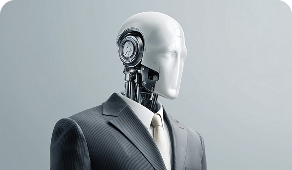Why Digital Transformation Solutions Fail and How AI Helps (Part 1)
“Growth must be chosen again and again, fear must be overcome again and again.”Abraham Maslow
Why open with Maslow in a discussion of digital transformation? Because transformation is about people before it is about technology. It is about psychology, fear, risk, and growth.
Digital transformation solutions are profoundly disruptive, not just to systems and processes, but to careers and mindsets. That is why so many initiatives stall. People resist change, even when the cost of resisting is greater than the cost of adapting. Generative AI (Gen AI) is now accelerating disruption at a pace that makes resistance even riskier.
Key Takeaways
-
Digital transformation solutions are cultural before they are technical. Fear, risk aversion, and complacency undermine progress.
-
Generative AI accelerates change bottom-up. Employees adopt tools like ChatGPT and copilots even without leadership mandates.
-
Stagnation is dangerous. Short-term success hides deep organizational weakness until external shocks expose it.
-
Continuous transformation builds resilience. Waiting for crisis makes change harder, not easier.

Why Change Is Hard
Every week, management journals promote digital transformation strategies, webinars, and frameworks. Consultants create decks filled with “best practices” and promises of modernization. But few emphasize the brutal difficulty of true change.
Grandiose goals often crumble when execution reaches frontline employees. Leaders rally with enthusiasm, but transformation messages rarely permeate across layers of the business. Some managers resist openly, others quietly, but many simply do nothing.
Generative AI complicates this dynamic. Unlike traditional projects, Gen AI can be embraced by all levels of employees with little oversight. That makes it potentially more disruptive than controlled change programs.
Digital Transformation and Business Process Management
True transformation is impossible without rethinking the digital transformation business process management that underpins daily operations. Processes that once seemed efficient can quickly become bottlenecks in an AI-driven world.
Generative AI exposes inefficiencies faster, forcing leaders to:
-
Automate manual workflows with intelligent tools.
-
Rethink governance models to balance speed with compliance.
-
Create feedback loops between strategy, execution, and data.
When business process management aligns with AI-driven insights, digital transformation solutions scale more effectively across the enterprise.
The Risk-Averse Manager Problem
Once managers reach senior levels, risk aversion grows. Why jeopardize a stable career to overhaul operations that appear to work “well enough”?
This paradox is troubling:
-
Those most capable of driving transformation, experienced leaders with political capital, are often the most reluctant.
-
Wisdom, experience, and connections that could enable change instead reinforce fear of disruption.
Humans crave stability, but in today’s world, stability is a false illusion. As Maslow reminds us, growth is a recurring choice.

Stagnation: The Silent Threat
Organizations resemble individuals. Some embrace dynamism, others stagnate. Short-term performance often masks decay beneath the surface.
When external shocks arrive, unprepared organizations find themselves in crisis. It is like training for a marathon only when you are already in the hospital for heart surgery.
Generative AI forces companies to confront weaknesses they ignored for years. Leaders cannot delay introspection any longer.
Why Many Businesses Still Resist
Despite rapid technological change, many executives:
-
Define success only by quarterly earnings calls.
-
Reward caretakers of the status quo, not agents of change.
-
Avoid asking hard, long-term questions for fear of internal pushback.
This short-termism is dangerous. Profit, resilience, and efficiency should be priorities, but cultural avoidance of uncomfortable truths keeps organizations vulnerable. As Harvard Business Review explains, too many companies underestimate the cultural and behavioral shifts required for real transformation.
Why Digital Transformation Often Fails
Despite widespread investment, few initiatives succeed. According to McKinsey, less than 30 percent of digital transformation programs deliver sustainable performance improvements. Leadership gaps, cultural resistance, and lack of capability building are the biggest culprits.
Transformation Must Be Ongoing
Transformation projects have always been hard, even before the digital era. But they cannot wait until survival is at stake. They must be continuous.
So how should organizations approach transformation?
-
By embracing methodologies such as AI/ML and data-driven decision making.
-
By encouraging leaders at every level to challenge assumptions.
-
By linking transformation outcomes to measurable goals, not slogans.
Start the Introspective Work Now
Transformation requires courage. It demands leaders confront uncomfortable realities, invest in growth, and accept disruption as necessary.
Start taking a deep introspective look at your organization today before it is too late.
Connect with us to begin your transformation journey.
FAQ on Digital Transformation Solutions
Q: Why do most digital transformation projects fail?
A: Because they focus on technology over culture. Fear of change, risk aversion, and lack of alignment undermine execution.
Q: How does Generative AI impact transformation?
A: Gen AI accelerates bottom-up change by enabling employees to experiment and adopt tools quickly, even without top-down initiatives.
Q: What makes digital transformation solutions successful?
A: Clear strategy tied to measurable outcomes, strong leadership, cultural readiness, and ongoing, not one-time, commitment.
Q: When should organizations start transformation?
A: Immediately. Transformation must be continuous, not reactive. Waiting until crisis conditions often guarantees failure.












